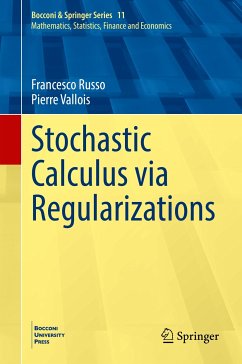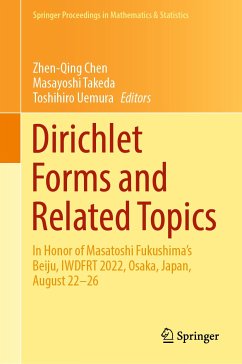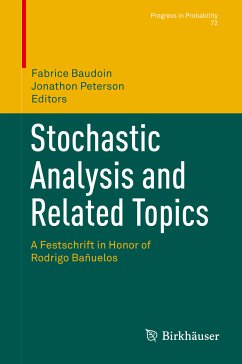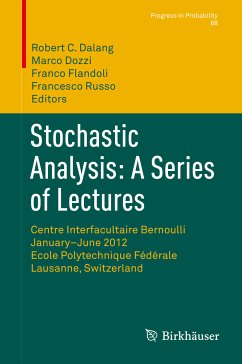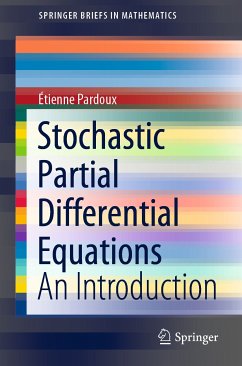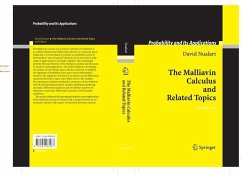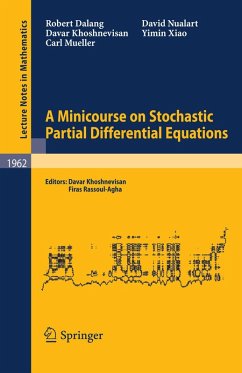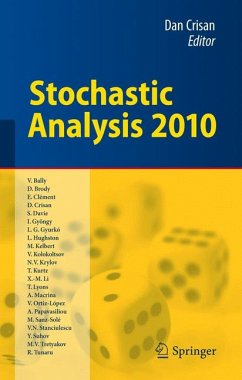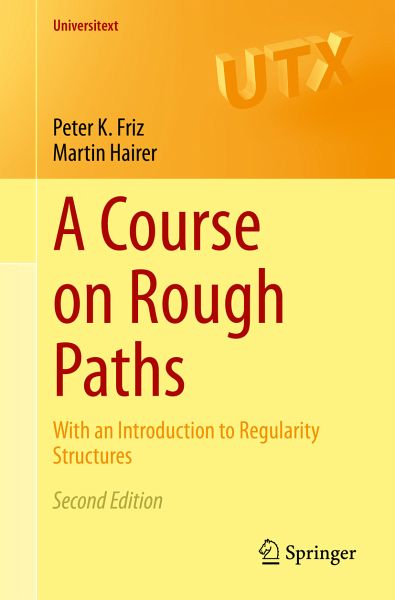
A Course on Rough Paths (eBook, PDF)
With an Introduction to Regularity Structures
Versandkostenfrei!
Sofort per Download lieferbar
44,95 €
inkl. MwSt.
Weitere Ausgaben:

PAYBACK Punkte
22 °P sammeln!
With many updates and additional exercises, the second edition of this book continues to provide readers with a gentle introduction to rough path analysis and regularity structures, theories that have yielded many new insights into the analysis of stochastic differential equations, and, most recently, stochastic partial differential equations.Rough path analysis provides the means for constructing a pathwise solution theory for stochastic differential equations which, in many respects, behaves like the theory of deterministic differential equations and permits a clean break between analytical ...
With many updates and additional exercises, the second edition of this book continues to provide readers with a gentle introduction to rough path analysis and regularity structures, theories that have yielded many new insights into the analysis of stochastic differential equations, and, most recently, stochastic partial differential equations.
Rough path analysis provides the means for constructing a pathwise solution theory for stochastic differential equations which, in many respects, behaves like the theory of deterministic differential equations and permits a clean break between analytical and probabilistic arguments. Together with the theory of regularity structures, it forms a robust toolbox, allowing the recovery of many classical results without having to rely on specific probabilistic properties such as adaptedness or the martingale property.
Essentially self-contained, this textbook puts the emphasis on ideas and short arguments, rather than aiming for the strongest possible statements. A typical reader will have been exposed to upper undergraduate analysis and probability courses, with little more than Itô-integration against Brownian motion required for most of the text.
From the reviews of the first edition:
"Can easily be used as a support for a graduate course ... Presents in an accessible way the unique point of view of two experts who themselves have largely contributed to the theory" - Fabrice Baudouin in the Mathematical Reviews
"It is easy to base a graduate course on rough paths on this ... A researcher who carefully works her way through all of the exercises will have a very good impression of the current state of the art" - Nicolas Perkowski in Zentralblatt MATH
Rough path analysis provides the means for constructing a pathwise solution theory for stochastic differential equations which, in many respects, behaves like the theory of deterministic differential equations and permits a clean break between analytical and probabilistic arguments. Together with the theory of regularity structures, it forms a robust toolbox, allowing the recovery of many classical results without having to rely on specific probabilistic properties such as adaptedness or the martingale property.
Essentially self-contained, this textbook puts the emphasis on ideas and short arguments, rather than aiming for the strongest possible statements. A typical reader will have been exposed to upper undergraduate analysis and probability courses, with little more than Itô-integration against Brownian motion required for most of the text.
From the reviews of the first edition:
"Can easily be used as a support for a graduate course ... Presents in an accessible way the unique point of view of two experts who themselves have largely contributed to the theory" - Fabrice Baudouin in the Mathematical Reviews
"It is easy to base a graduate course on rough paths on this ... A researcher who carefully works her way through all of the exercises will have a very good impression of the current state of the art" - Nicolas Perkowski in Zentralblatt MATH
Dieser Download kann aus rechtlichen Gründen nur mit Rechnungsadresse in A, B, BG, CY, CZ, D, DK, EW, E, FIN, F, GR, HR, H, IRL, I, LT, L, LR, M, NL, PL, P, R, S, SLO, SK ausgeliefert werden.




